11-0066 

11-0066 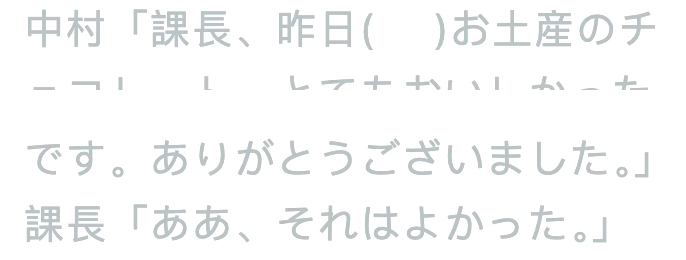

- Nakamura: Chief, the chocolates you gave me yesterday were very good, thank you.
- Section Chief: Ah! That's good.
- いただいた→いただく:''rao's self-effacing expression for getting.
- おりました → おる: a polite way of saying いる.
- まいりました → まいる: a self-effacing phrase for traveling or coming.
- なさった→なさる:する的尊敬語。
12-0127 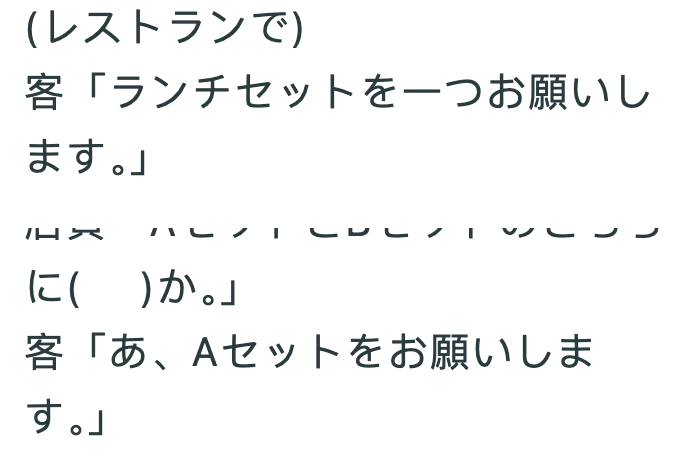

12-0127 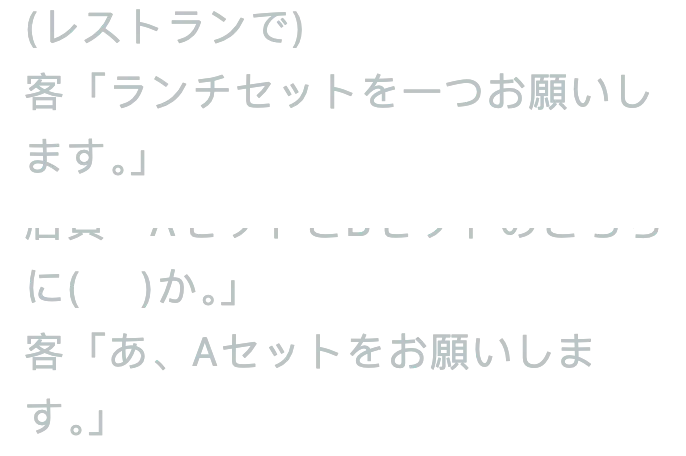

- (in the cafeteria)
- Guest: I'd like a lunch set, please.
- Clerk, package A or package B, which one do you want?
- Guest: Package A, please.
- なさいます: the honorific of する.
- どちらになさいますか:Commonly used expression in the service industry to show respect and sensitivity to guests. It means which one do you want?
- 差し上げます:あげる的自谦语。 It means to present, to honor, to give to you.
- ございます: A polite expression for ある.
13-0128 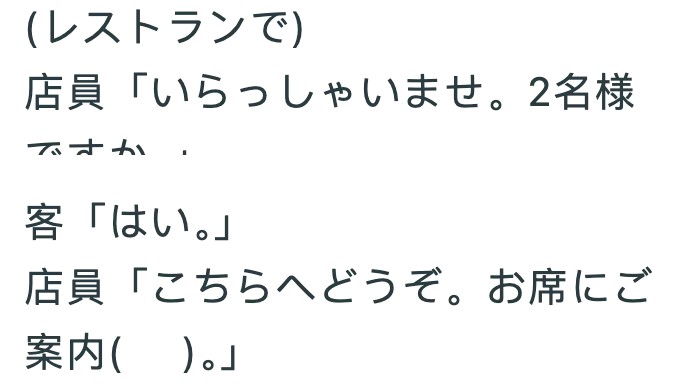

13-0128 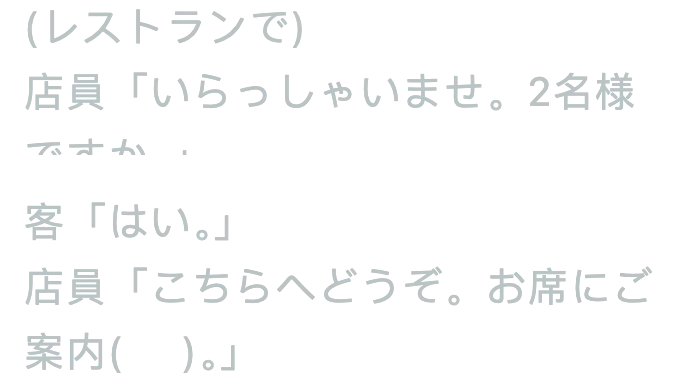

- (in the cafeteria)
- Clerk: Welcome. Are there two of you?
- Guest: Yes.
- Clerk: Please go this way. I'll take you there.
- ~に案内する : To lead to somewhere.
- Itasu: A self-effacing word for する.
- Nasaru: The honorific for する. A shopkeeper needs to use self-effacing language when describing his or her behavior.
- うかがいます: うかがう is a self-effacing word for "聞く・尋ねる".
- いらっしゃいます: A term of respect for いる, 行く, and 来る.
14-0129 

14-0129 

- The president always comes back from business trips with gifts for us part-time employees.
- Kudasamasu: Kudasaru is the honorific with える-くれる, meaning to send, to give (to me).
- Used when the other person is a person of higher status than oneself or an elder, the subject is the other person.
- いただきます:Self-humble word for もらう. It means to worship and lead, to be blessed by ...... given, the subject is oneself.
- 差し上げます:与える-やる的自谦语。 Meaning to give away, gifted to the subject as oneself.
- 召し上がります:Respectively of 食う-飲む. Means to dine, to take a meal, to drink.
15-0130 

15-0130 

- Teacher HOA Did your parents say anything when you said you wanted to study abroad?
- HOA they said to cheer me on and support me.
- Oっしゃる: A honorific expression for "言う"("言う").
- うかがう: Self-effacing expressions for "聞く" and "尋ねる".
- もうし上げる (もうしあげる): a self-effacing expression of "言う" (言う).
- お聞きになる:"聞く"'s honorific expression










